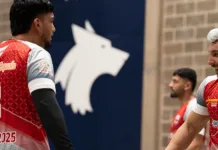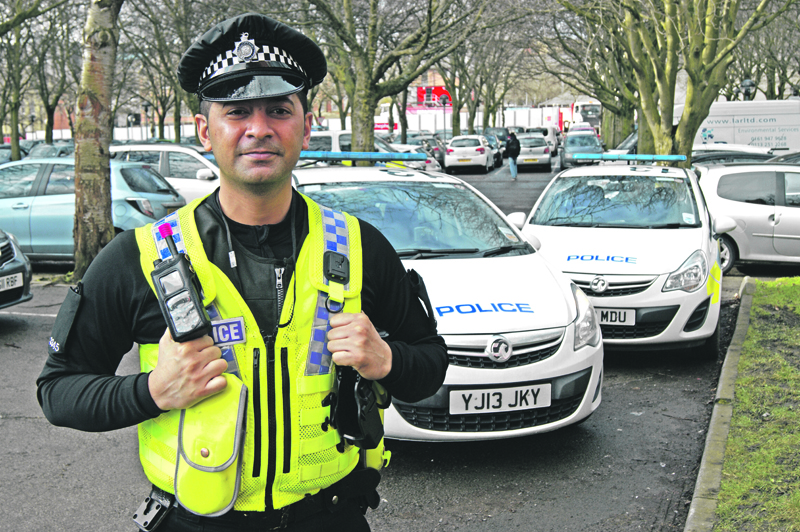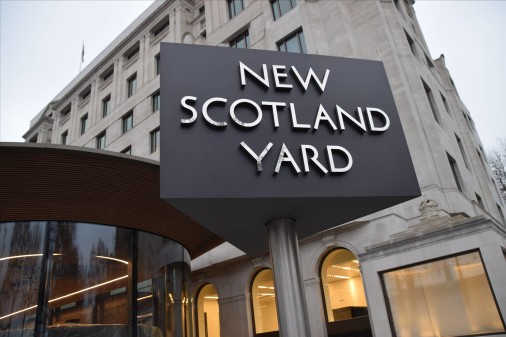
The force’s first black and Asian officers have paved the way for a more diverse police force in the West Midlands.
During the late 1960s, West Midlands Police was a pioneer in recruiting from black and minority ethnic (BME) communities
Now, as part of Black History Month, the force is celebrating 50 years since the first BME officer signed-up and the 20th anniversary of the West Midlands Black and Asian Police Association (BAPA) – one of the longest established in the country.
The trailblazing officers and their families have marked the milestone by recalling their early memories on the beat and some of the challenges they faced.
The officers have also backed the force’s pledge and BAPA’s push to recruit more staff from diverse communities.
Almost nine per cent of officers in West Midlands Police are from BME communities – the second highest representation in UK policing – and the force has introduced a Positive Action programme aimed at attracting, developing and retaining BME staff.
Mohammed Yusuf Daar became Britain’s first BME officer in the spring of 1966, when he joined as a PC with Coventry City Police.
He’d previously been with the Tanzania police force and upon joining affectionately became known as ‘Joe’, a translation of his name in English.
Mr Daar, now aged 74, said: “I was already experienced as an officer and wanted to join the force in the West Midlands. I didn’t really think about the impact or that I was making history in becoming the force’s first Asian officer.
“Everyone was very welcoming and members of the public would come over and shake my hand. I did not encounter any racism.”
He continued: “I remember one occasion not long after I started when a man came to me in Coventry city centre and to say his wife had been taken ill.
“I helped call for an ambulance. He came back the next day to thank me.”
Mr Daar, who inspired his brother Yunus to join the police, added: “We feel lucky we opened the doors for others to join. It’s encouraging to see more people from ethnic groups being part of the police now.”

Ralph Ramadhar became the first black officer in Birmingham after also joining West Midlands Police in 1966.
He overcame initial racism from a pocket of the community before promoting to sergeant.
Ralph left the force in 1977 after 11 years when he returned to his native Trinidad. Sadly he passed away just a decade later aged 49.
He had arrived in the UK with his wife Nell – a trainee nurse – and successfully applied to become a police officer after seeing an advertisement.
The father-of-two won over the public through his community work, including supporting young people and involvement with his local church.
His skills as a police officer also shone through and the adage that an officer is never truly off duty was evident when he arrested a criminal while on holiday in Great Yarmouth.
Nell said: “He was very proactive and wanted to improve himself. He faced some difficulties: there were incidents of racism and slogans were painted outside our house saying ’no black police men wanted.’
“Despite the challenges Ralph and ourselves faced we were supported by the police and the local church to overcome this situation.
“Ralph joined the police force to be an officer first and foremost and had no idea he would be the first black officer. Colour did not concern him. He knew there would be challenges…his primary concern was serving the community he loved.
“He was a big advocate of recruitment; I think he would believe there is more to do but he would be proud there are more ethnic officers now.”
Another of the successful first recruits was Ramesh Kumar, who joined as a police cadet in 1970 and went on to become a fully-fledged officer and picking up a Queen’s Police Medal for his work.
The 62 year-old, who spent a long period as a traffic cop in the Black Country, said: “Right at the beginning of my career I was involved in major enquiries as I was able to communicate with some communities due to my background and language skills.
“It was hard and challenging being an Asian officer as the police service and community were not used to it.
“There was some racism in the force and outside on the streets but the vast majority were very supportive. It was just a bit of cultural ignorance.”
Ramesh – a founder member of BAPA – added: “We are trying to make things better for staff…BAPA plays an important role as a support service and to raise awareness of what needs to be done.
“Things have improved and more black and Asian staff have been recruited…but more is still needed.”
Police and Crime Commissioner David Jamieson said: “The first BME officers and staff to join West Midlands Police were trailblazers for those that have followed.
“As we recruit 1,150 new officers, staff and PCSOs I am determined to make the force look more like the communities it serves.”
West Midlands Police is set to reopen recruitment for PCs this autumn. Anyone considering a career as a police officer can see further information, and register their interest with the force.
West Midlands Police Chief Constable Dave Thompson said: “It is great news that we again have an opportunity to welcome a new group of recruits into West Midlands Police, which will help us to provide an even better service by bringing fresh ideas into our workforce, directly from the communities we serve.
“The area we police is richly diverse, with around 30 per cent of local people coming from ethnic minority backgrounds. We want our force to reflect that and it is key that communities know that we have a strong commitment to equality and diversity. We are hopeful that the next phase of recruitment helps to further our efforts in making West Midlands Police representative of the many different cultures it serves.”















